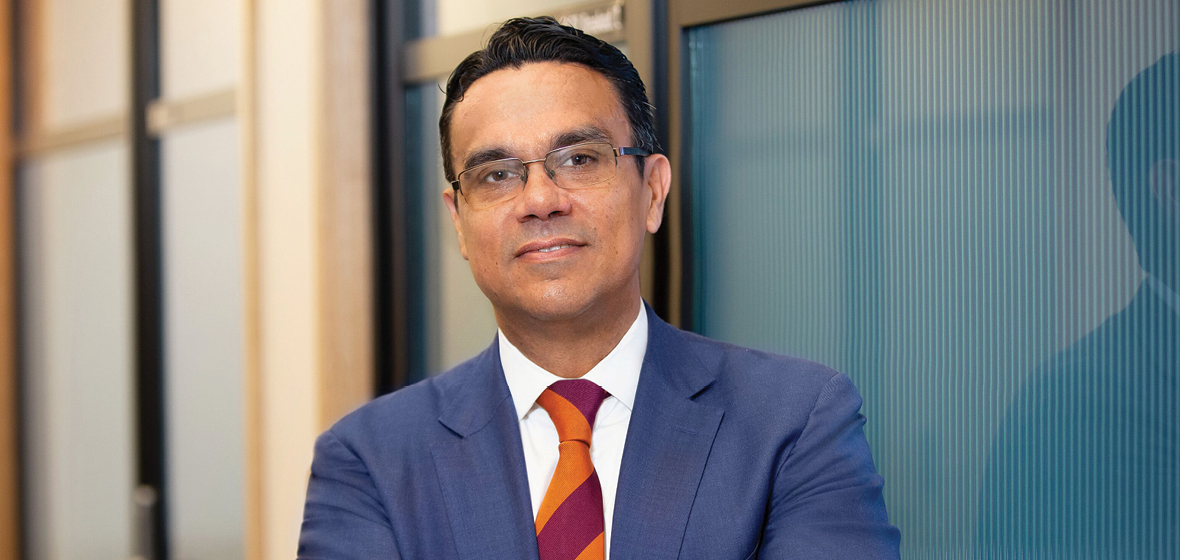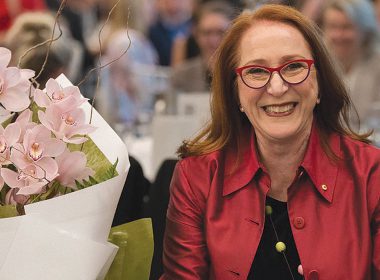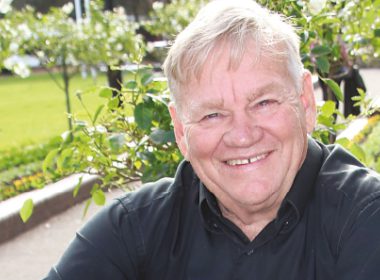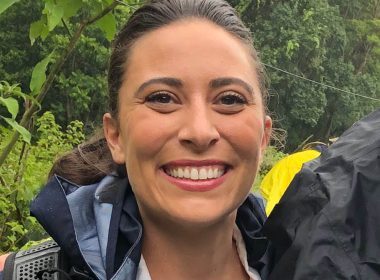As Legal Aid NSW celebrates its 40th anniversary, the organisation’s CEO shares his vision and hopes for the future.
Brendan Thomas has long had a fascination with policy and the criminal justice system – especially improving the experience of Aboriginal people coming into contact with it.
A proud Wiradjuri man, Thomas has had an impressive career in government, including senior roles at the Department of Justice and the Attorney General’s Department, to name a few, as well as key board positions with the NSW Victims Advisory Board and the Australian Institute of Criminology.
A veteran of justice-related policy roles, Thomas is now tasked with steering Legal Aid NSW into a future which, at present, looks uncertain. As the legal profession waits with bated breath for the outcome of the Attorney General’s decision on legal aid funding, Thomas already has a clear and ambitious idea of where the additional money would go.
“First, if we can get that funding, we can increase the amount of money we pay to private lawyers doing our work,” he says.
We’ve got a cliff that we’re facing, and at some point in the not-too-distant future we will have difficulty in being able to provide enough legal services in NSW.
“We want to make sure we’re really working in partnership with the private profession. We haven’t done that very well in the past, and we’ve got some big changes we want to make; to have people come into Legal Aid to do work for us in a way that is much easier, faster and more intuitive, and to structure the way we engage private law firms much more along the lines of the management profession in general.”
One key area of focus with the private profession will be additional training, so lawyers are better equipped to deal with legal aid clients.
“Unless you’re doing legal aid work, you’re not going to come across too many very disadvantaged people, and we’re expecting lawyers to deal with those people in a comprehensive and appropriate way,” he says.
“Unless we are working with private lawyers to help provide training and expertise, how else are they going to get by?”
Thomas says the organisation is keen to ensure clients are at the heart of all they do, and this strategy is being informed by conversations with clients themselves.
“We have done a lot of work talking to clients in the past 12 months about how they have experienced working with Legal Aid. We found some very good things, and some things we need to work on,” he says.
“Particularly, we have found that clients often don’t know where to go. It’s taking them too many tries to get through the front door. So recently we took on management of the Law Access call centre to streamline client entry into legal assistance services.
“We want to make sure we are providing comprehensive services, so we are not just dealing with people as a criminal law problem or a civil law problem; we are dealing with them as a person. They are telling their story once and getting help as quickly as possible.”
Over the past 40 years, Legal Aid has grown into one of the country’s biggest law practices. It has more than 600 lawyers, and about 2,200 private lawyers on the books. In the NSW court system, Legal Aid is involved in about 50 per cent of all criminal work in the local court, and 75 per cent of all work in higher jurisdictions.
“We’ve got offices in 25 locations in NSW now, with a focus on where the most disadvantaged people live,” says Thomas.
“Most of our clients are the most disadvantaged people in the state – they’re people with mental health problems, drug addictions, without a home. The role of our organisation isn’t just about providing a legal service, but about providing a service in a way that is accessible and meaningful to people in those situations.”
Interestingly, Thomas says disadvantage today looks very different to how it did 40 years ago.
“Our clients are becoming more complex, with more dual-diagnosis – intellectual disabilities, mental health problems, long-term drug abuse, coming from really complex families and backgrounds, and falling on hard times,” explains Thomas.
“That makes the job of our staff harder, but more important than perhaps it was in the past.”
Dealing with trauma can take its toll on lawyers, which is why Thomas also sees wellbeing as an integral part of Legal Aid’s vision for the next 40 years.
“About 80 per cent of our family law matters involve some form of violence, and most of the serious violence pursued through the criminal justice system is done by grants of legal aid, so our staff are dealing with complex people in really awful circumstances,” says Thomas.
“We need to do everything we can to make sure they are okay, and that they are healthy and well. We are doing that, but we need to make sure we’re on the front foot.”
The fact that Legal Aid’s funding is hurtling towards a cliff makes Thomas understandably uncomfortable, but for now he’s hopeful that positive outcomes will emerge from Budget discussions.
He does, though, acknowledge that even if requests for additional funding are met, the bucket will never be full enough.
“You could give us double the budget and we’d still find need to meet,” he says.
“The level of legal need out there is enormous, and while we try to understand the scope of that need, I’m always surprised by how much of it there is. Last year, we opened satellite offices in Bourke and Walgett. In Walgett, we had a ceremony to open the office. I was giving a speech, welcoming the dignitaries and community members, and there were people lining up outside to get access. They were turning up as we were delivering the ceremony. We had no previous presence there, so that legal need was just being masked.”
Thomas realises he has a challenge on his hands, especially in relation to the stagnant hourly rates currently paid to private practitioners – many of whom are regional lawyers trying to keep their businesses afloat in a depressed, drought-affected economy.
“It does concern me, particularly outside of Sydney and in country areas where every kind of service is lower – legal and otherwise,” says Thomas.
“We’re becoming more and more reliant on a smaller number of people, and reliant on the good will of those people. If we can’t properly provide work for them, it makes their entire business model unviable. If those lawyers are not viable, who does the work that we don’t do? Who is there in the community to do the wills and estates, the contracts? The community suffers, and that worries me a lot.
“We’ve got a cliff that we’re facing, and at some point in the not-too-distant future we will have difficulty in being able to provide enough legal services in NSW. There’s no question about that.”





